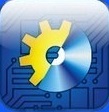Aims & Scope
Journal «Automation of technological and business processes» is the fourteenth year of serving the interests of national experts and invites everyone to further cooperation, and wish all that life has always been full of bright, good events, and each new day bring happiness and prosperity in professional matters!
The basic subjects of the publication:
- THEORY PROBLEMS, METHODS AND ALGORITHMS OF EFFECTIVE AUTOMATIC STEERING OF OBJECTS OF CHEMISTRY-TECHNOLOGICAL TYPE, SWITCHING ON:
- Objects with the distributed parameters and-or retardation, in the conditions of intensive perturbations (SАC are invariant, cascade, with changeable structure, with forecasting, with object models etc.);
- Objects with essential indeterminate form and non-stationary properties (SAC with optimization, adaptation, on the basis of artificial neural webs and fuzzy logic);
- Objects with restrictions of type "emergency" on value of their regime variables and objects with restricted resources on guidance;
- Objects with logic-dynamic properties.
- THE SELF-ACTING AND AUTOMATED CONTROL SYSTEMS OF PROCESSES (BUILD-UP PRINCIPLES, INSTANCES OF WORKINGS OUT, THE EFFICIENCY ANALYSIS), SWITCHING ON:
- Mathematical modelling and identification of models of processes as objects of guidance, approaches to an adequacy estimate, the use of models for system engineering of guidance and as a builder of control algorithms;
- New approaches to working out of the automated systems of the complicated processes (functional, scenery, evolutionary etc.);
- Systems of a support of a decision making functional of the automated systems and principles of working out of the effective automated work stations (automated workplace) of functional;
- Pinch of efficiency and optimization of automatic steering by groups of technological assemblies (switched on sequentially, in a parallel way, with a recycling and mixing);
- Guidance of processes in the starting (transitive) and erected operating modes
- MEASURINGS OF TECHNOLOGICAL VARIABLES AND THE VARIABLES CHARACTERIZING THE STATE OF THE EQUIPMENT, THEIR METROLOGICAL SECURITY, SWITCHING ON:
- Physic technical bottoms self-acting continuous and / or measuring proximate methods, problems of their metrological security and program-technical embodying;
- Methods of pinch of accuracy of straight lines and indirect measurements;
- Restitutions of values of variables, which for direct measuring, including diagnostic of violations in an engineering state of the equipment.
- HARDWARE COMPONENTS AND INFORMATION TECHNOLOGY IN CONTROL SYSTEMS, INCLUDING:
- Surveys and the comparative analysis of program-means of gathering, machining and representation of the information on a course of a process, tools of an intellectual kern of system and levers on process;
- The organization of webs for interacting of control units and computers in an intellectual kern of system, interacting of a kern with tools of data acquisition and agency on process, with remote users and the set-up man of system;
- Practical problems of expedient application, adjustment, tuning, installation of hardware components of automation, effective application of software
- THE THEORY AND PRACTICE OF AUTOMATION OF BUSINESS PROCESSES
- Theoretical bottoms of automation of business processes, scientifically-methodological approaches to guidance of business processes and their automations;
- Innovative production engineering of automation of business processes;
- Practical solutions of problems of automation of business processes, experience of a heading of systems of automation of business processes.
- PINCH OF EFFICIENCY OF A PROFESSIONAL TRAINING IN THE FIELD OF AUTOMATION TECHNOLOGICAL AND BUSINESS PROCESSES
- Directions and methods of improvement of quality of preparation of specialists in the field of automation;
- Effective shapes of the organization of educational process, world experience of the organization of systems of preparation of high quality specialists, control systems of quality in formation.
Applications to problems in both developed and less-developed countries are welcomed. Articles need to make a significant contribution to the theoretical and /or methodological literature on the subject and contain a strong scientific component.

